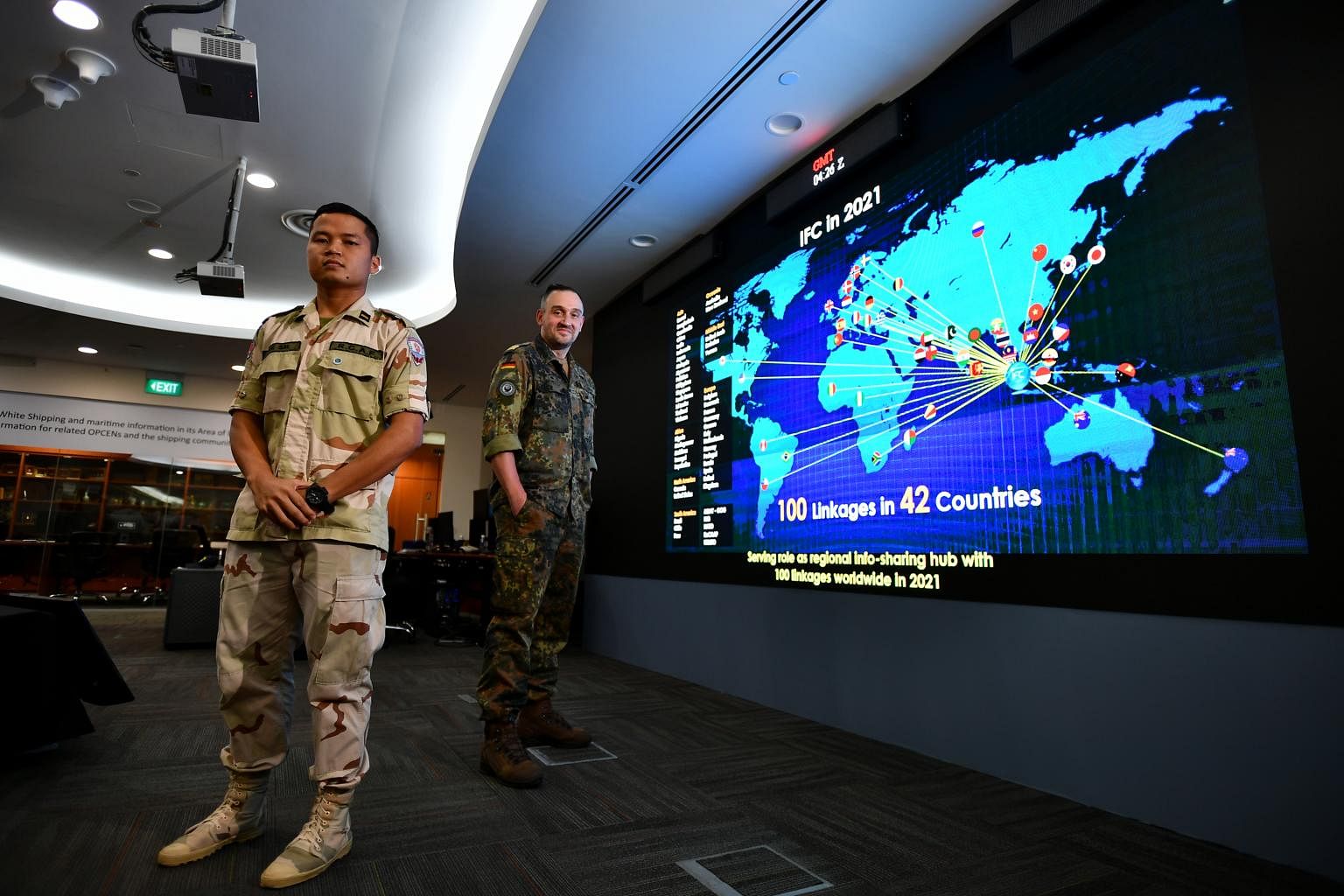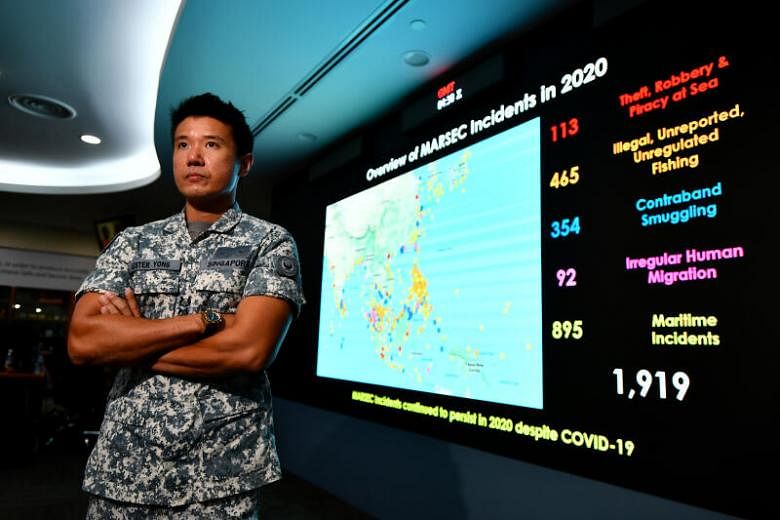SINGAPORE - Keeping the sea safe protects Singapore's supply lines and sovereignty, but requires close cooperation both among agencies here and with other states, said Senior Minister of State for Defence Zaqy Mohamad on Wednesday (March 10).
Maritime cooperation with other countries also helps Singapore gain naval information against piracy and other interest areas, such as commercial shipping and to curb trafficking, he added.
"We've had good support from the international community (and) it bodes well for Singapore (as) we've been able to pick up a lot of intelligence which helps us in our threat assessment," he told reporters at Changi Naval Base, where he was visiting the Singapore navy's Maritime Security Task Force (MSTF) and Maritime Security Command.
There have also been instances where Singapore has helped other countries address certain issues overseas by sharing the intelligence it had gathered.
This helps Singapore become a maritime security hub, said Mr Zaqy.
On Wednesday, the Regional Cooperation Agreement on Combating Piracy and Armed Robbery against Ships in Asia (Recaap) Information Sharing Centre (ISC) said there were three incidents of armed robbery against ships in Asia last month.
Of the three, two were reported in the Singapore Strait, in the eastbound lane of the Traffic Separation Scheme. It brought the total number of cases in the key waterway to five so far this year.
"The Recaap ISC is concerned with the continued occurrence of incidents on board ships while underway in the Singapore Strait," said the organisation.
The number of piracy and armed robbery cases in the Singapore Strait last year hit its highest mark in half a decade, with 34 incidents.
Mr Zaqy noted that the increase in piracy cases last year happening during the pandemic, and he suspects that "a large part of it is also due to economic downturn and people looking for opportunities".
"If you look at the kind of threats that we are having, the 34 cases were, although they call it Singapore Strait, actually out of Singapore waters and actually in our neighbouring territories," he said.
Bodies like the Information Fusion Centre (IFC) hence play key roles in passing information on to neighbouring countries to help them arrest the perpetrators, said Mr Zaqy, who was accompanied on his visit by Chief of Navy Aaron Beng and MSTF commander Yong Wei Hsiung.
During his visit, Mr Zaqy also highlighted how the navy maintained its operations to safeguard Singapore's waters despite the pandemic.
Noting that maritime security threats are becoming increasingly complex, Mr Zaqy expressed confidence that the navy's regular officers and national servicemen will be able to rise to the challenge.
The MSTF works closely with other national maritime agencies and international partners, through the IFC, to coordinate efforts to tackle maritime threats.
The IFC is a regional body which facilitates information-sharing between multiple countries, and liaises with international navies, coast guards and maritime agencies to respond to maritime threats, such as piracy, maritime terrorism, contraband smuggling and illegal fishing. It was formed in April 2009.
Lieutenant-Colonel Lester Yong, who heads the centre, stressed that maritime security cannot be the responsibility of a single country or agency, and that the Singapore Strait accounts for over 70 per cent of the world's maritime trade flow.
Last year, the IFC dealt with 1,919 maritime security incidents within the area, including 113 cases of theft, robbery and piracy at sea, 465 cases of illegal fishing, and 895 maritime incidents such as weather-related accidents or collisions.

"Just last year, the IFC shared information regarding the attempted robbery of the vessel Sam Jaguar to the Indonesian Navy, who were able to act on the information and apprehend the suspects in Indonesia waters," said LTC Yong, to cite an example.
The IFC hosts international liaison officers, who are posted here typically for between six months to three years, and help extend the information network of the set-up.
The centre's area of interest runs from the Indian Ocean, to north Asia and down to the northern tip of Australia.
Lieutenant-Commander Christian Hegering, the first liaison officer to be posted here from Germany, said: "My work here is an expression of our (Germany's) Asia-Pacific guidelines that was published by our government in September last year."
As part of the IFC's set-up, Germany gets a first-hand understanding into this region, which is important since "water doesn't have real physical borders" and everyone is similarly impacted by developments in the maritime trade and global supply chains, he said.
"Everything that is happening here, might have an influence on security and supply for our population (back home)," said LCDR Hegering, who has been posted here for six months.
Cambodian liaison officer Sok Sal, who has been here for 2½ years, said that while disagreements do happen in the IFC due to differing perspectives and views of various countries, they always end up reaching a consensus, given the broadly-aligned interest in ensuring maritime security in regional sea lanes.


